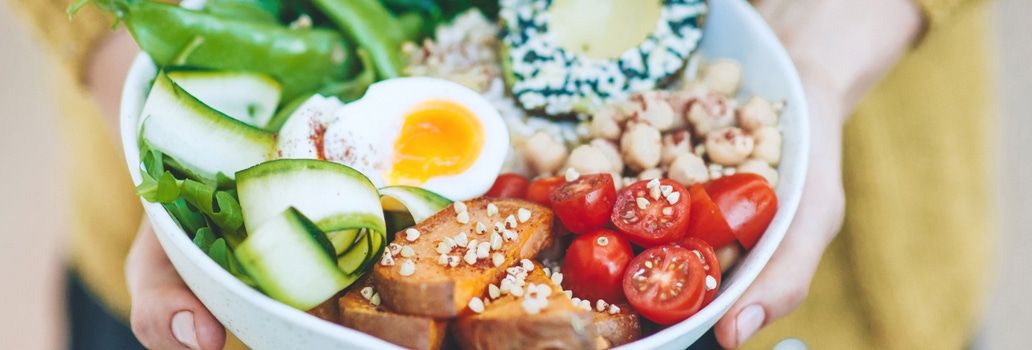
Is it time to shake up your approach to protein?
There is no doubt your body needs protein. It’s important for muscle growth, tissue repair and recovery after exercise. The biggest driver behind the current protein craze, is the idea that high protein diets can assist with weight loss. However, is the secret to shedding the kilos really as simple as eating more protein? Or is there more to it?
According to Sanitarium dietitian Charlotte Moor, protein is largely misunderstood.
“Protein can preserve lean muscle mass, help regulate appetite and enhance satiety to help manage cravings and keep you feeling full, said Ms Moor.
“However, too much of anything, even protein, can provide more kilojoules than your body actually needs, stopping weight loss and even causing weight gain.
“To get the balance right for weight loss, it’s important to not just focus on eating more protein but consider spreading your protein intake across the day and focus on healthy, whole food sources.”
Here’s more insights from Sanitarium Dietitian Charlotte Moor on protein:
More protein at brekkie
A report from the CSIRO shows that eating more protein, especially at breakfast, may be the key to achieving healthy weight loss. It recommends spreading your protein consumption across the day aiming for at least 25g – 30g of protein at each main meal.
So why would this make a difference? Well, eating more protein at brekkie may help to regulate your appetite, keep you feeling fuller for longer, kick start your metabolism and stop cravings.
Now, we’re not just talking eggs on toast every day. Ticking the box of 25g of protein at brekkie can be as simple as wholegrain cereal or muesli and yoghurt sprinkled with nuts, peanut butter on toast and a glass of soy milk or a soy latte, or choose from the growing numbers of high protein brekkie cereals on the market.
Not all sources of protein are healthy
New Zealanders get 14 percent of their protein from ‘occasional’ foods. It’s not that these foods are all high in protein, it just means people eat a lot of these foods. ‘Occasional’ foods generally provide little nutritional value, so while they may contain some protein it can come with a whole lot of added sugars, salt and saturated fats too.
That’s why, when it comes to protein, it’s important to choose mostly whole foods. Sources of plant protein include legumes, peas, nuts, seeds, soy products such as tofu, soy milk and soy yoghurt, and wholegrains, just to name a few. Not only do these foods provide protein, but they offer a wealth of vitamins, minerals and powerful plant chemicals (phytochemicals) that are important for feeling great.
So how much protein do you really need?
The Ministry of Health recommends women eat 46g of protein a day, more if pregnant (60g), and even more again if breastfeeding (67g). We also need to up our protein intake (57g) after turning 70.
The recommended daily intakes are higher for men (64g) and then there are different targets for teenagers, older adults (over 70 years) and people with demanding exercise regimes.
The CSIRO recommends a higher protein intake for weight loss of 25-30g a meal. The NZ Nutrition Foundation recommends this site to help you determine your protein requirements.
However, excessively high protein diets (more than 2g of protein per kilogram of body weight per day) are not recommended for the general population, especially those omitting other food groups, such as grains or vegetables and fruit.
So what about a protein boost after exercise?
It’s a good habit to have a snack that provides protein and carbohydrates after exercise. These nutrients are needed to help to repair your muscles and replenish your fuel stores. Your body is most effective at replacing carbohydrates and promoting muscle repair and growth in the first 60-90 minutes after exercise. A DIY smoothie including nut butter, milk or soy milk and wholegrains will meet your needs without expensive protein powders.
While diet is the biggest contributor to weight loss, exercise also plays a key role so ensure you’re moving your body for at least 30 minutes every day.

The latest nutrition advice, plus health and wellness tips delivered to your inbox monthly